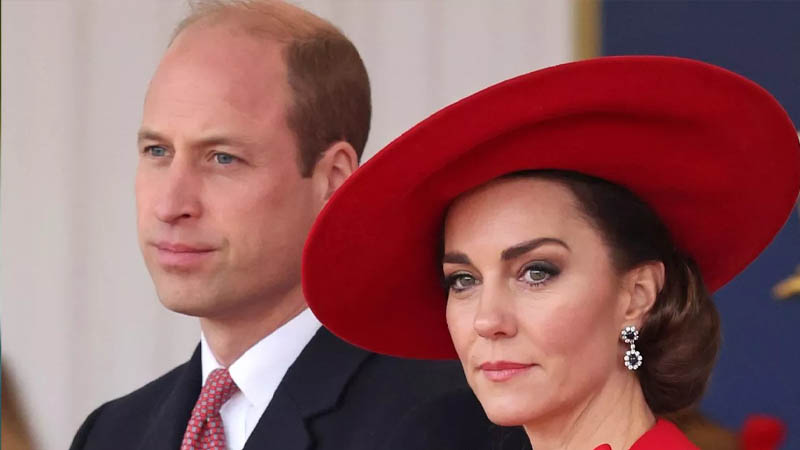
Kate Middleton’s Cancer Battle Leaves Elderly Royals Struggling Alone in Shocking Impact on British Monarchy
Share0Royal experts have raised concerns about the impact of Kate Middleton’s battle with cancer on the British monarchy, highlighting how the absence of younger royals has left older members, such as 80-year-olds, to shoulder significant responsibilities alone.
Renowned royal commentator Daniela Elser shared these concerns in a recent piece for News.com.au, shedding light on the potential ramifications of Kate’s cancer diagnosis on the royal family’s duties and engagements.
Elser emphasized the need for emergency meetings behind the scenes following Kate’s revelation about her cancer diagnosis. The sudden and unexpected health challenge faced by the Duchess of Cambridge has likely prompted discussions among royal aides and officials about how to manage the royal family’s public engagements and responsibilities moving forward.
According to Ms Elser, “For months now, William and Kate’s office would logically have to have been working out how to manage the princess’ patronages, charities, and large-scale initiatives – keeping-the-home-fires-burning stuff.” “However in the grander scheme of things, things seem much less obvious or straightforward,” she warned.
Because “With Kate undergoing preventative chemotherapy, with William having scaled back his work for much of this year to support her and with the King also undergoing treatment, the end result is a series of hard-working – but fundamentally pallid – 60, 70 and 80-something HRHs left to push the royal barrow.” And “The timing further complicates matters,” she also added given the fact that there are very less senior working members of the Royal Family left.
With younger members of the royal family, such as Kate and Prince William, potentially stepping back from their duties to focus on Kate’s health and treatment, the burden falls on older royals to fulfill public obligations. This scenario raises concerns about the strain on senior members of the royal family, particularly those who are advanced in age.
The image of 80-year-old royals symbolically pushing heavy burdens alone underscores the challenges faced by the monarchy in navigating the complexities of public perception and royal duties during times of personal crisis within the family.
As the royal family grapples with Kate’s cancer battle and its implications for their public roles, there is likely a heightened sense of urgency to address the immediate and long-term impacts on the institution. Balancing personal health concerns with public responsibilities presents a delicate challenge for the royal family, requiring careful consideration and strategic planning.
Elser’s insights shed light on the behind-the-scenes discussions and considerations that are taking place within the royal household as they navigate this challenging period. The implications of Kate’s cancer battle extend beyond the personal to the institutional, prompting reflections on the monarchy’s role and responsibilities in times of adversity.
